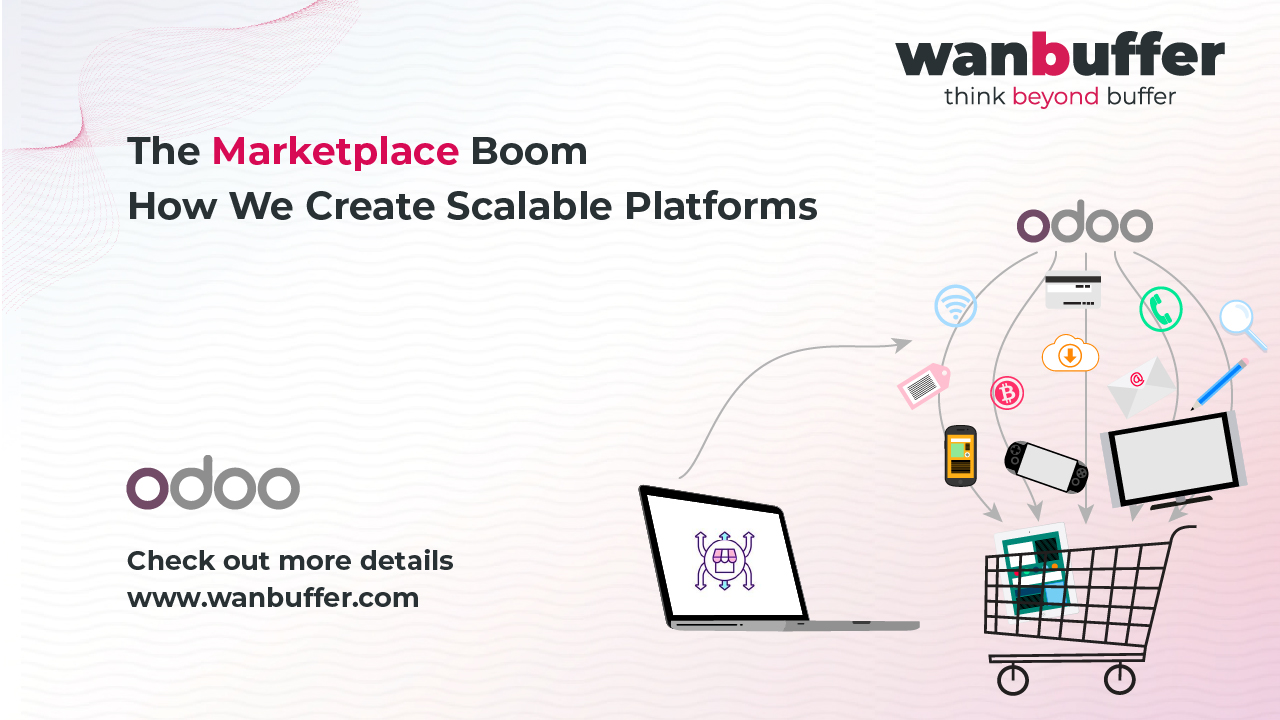
Table of Contents
1. Introduction
The rise of digital commerce has transformed how businesses operate, with online marketplaces becoming a dominant force in various industries. From e-commerce platforms like Amazon to service-based marketplaces like Airbnb, businesses are increasingly investing in scalable and efficient platforms to drive growth.
However, building a scalable marketplace requires a strategic approach. Businesses must ensure their platforms can handle high traffic, seamless transactions, and efficient vendor management while maintaining an excellent user experience.
2. The Rise of Online Marketplaces
The global e-commerce industry has experienced exponential growth, with marketplaces playing a crucial role in connecting buyers and sellers. The demand for digital commerce platforms has surged due to:
- Increased internet penetration and mobile accessibility
- The shift in consumer behavior towards online shopping
- The rise of on-demand services and gig economy platforms
- Businesses expanding globally without physical storefronts
Online marketplaces not only benefit businesses but also empower small vendors, offering them a platform to reach a wider audience with minimal operational costs.
3. Key Challenges in Building Scalable Marketplaces
While the marketplace model offers significant advantages, businesses face several challenges when developing a scalable platform:
- Handling High Traffic – Ensuring seamless performance without downtime.
- Vendor and Inventory Management – Managing multiple sellers and products efficiently.
- Secure Transactions – Implementing fraud-proof payment systems.
- Personalized User Experience – AI-driven recommendations for better engagement.
- Regulatory Compliance – Ensuring data security and adherence to multiple regional laws.
Addressing these challenges requires a robust technical foundation combined with AI-driven automation and cloud scalability.
4. How We Develop Scalable Marketplace Platforms
Robust and Flexible Architecture
- Microservices-based frameworks for flexibility and performance
- API-driven integrations to connect third-party applications seamlessly
- Load balancing and caching mechanisms for optimized speed
AI-Powered Search and Personalization
- AI-driven search algorithms for accurate and relevant results
- Personalized recommendations based on user behavior
- Chatbots and virtual assistants for better customer support
Secure Payment Gateways
- Multi-currency support for global transactions
- End-to-end encryption for secure payments
- Multiple payment options, including digital wallets and cryptocurrencies
Efficient Vendor and Inventory Management
- Automated inventory tracking and stock alerts
- Seller dashboards for real-time order and revenue tracking
- AI-based demand forecasting to optimize stock levels
Scalable Cloud Infrastructure
- Auto-scaling cloud environments for growing traffic
- CDNs for faster load times worldwide
- Database optimization for handling large datasets
How Odoo’s New Inventory Management Tools Optimize Stock Control
5. Industry Applications of Marketplace Platforms
E-Commerce and Retail
Marketplaces connect buyers and sellers, enabling seamless product discovery, comparison, and purchasing.
Service-Based Marketplaces
On-demand services, such as ride-sharing and freelance platforms, require dynamic scheduling, user ratings, and secure transactions.
B2B Marketplaces
Businesses use marketplaces to streamline procurement, automate bulk ordering, and manage supplier relationships.
Healthcare and Pharmaceuticals
Medical marketplaces facilitate the distribution of medicines, healthcare equipment, and virtual consultations.
Hospitality and Travel
Booking platforms rely on real-time availability tracking, pricing algorithms, and user reviews.
6. Future Trends in Marketplace Development
The future of online marketplaces will be shaped by emerging technologies, including:
- AI-driven automation – Enhancing fraud detection and personalized experiences.
- Blockchain payments – Ensuring security and transparency.
- Voice commerce – Integrating voice assistants for seamless transactions.
- AR shopping experiences – Enabling virtual try-ons and interactive visualization.
- Sustainability initiatives – Meeting consumer demand for ethical sourcing.
7. Conclusion
Scalable marketplaces are the foundation of digital commerce success. To build a high-performing platform, businesses must focus on:
- ✔ A robust and flexible architecture for long-term scalability
- ✔ AI-powered search and personalized recommendations for user engagement
- ✔ Secure payment gateways and fraud prevention mechanisms
- ✔ Cloud-based solutions to handle traffic surges seamlessly
Looking to build a scalable marketplace? Contact Wan Buffer Services today to develop a high-performance, AI-driven marketplace platform.
FAQs
-
What are the key factors in building a scalable online marketplace?
A scalable marketplace requires a robust architecture, AI-driven personalization, secure payment gateways, efficient vendor management, and cloud-based infrastructure to handle high traffic seamlessly.
-
Why is cloud infrastructure important for marketplace platforms?
Cloud-based solutions provide auto-scaling capabilities, ensuring that the platform can handle traffic surges, optimize database performance, and deliver fast load times worldwide through CDNs.
-
What industries benefit from marketplace platforms?
Various industries, including e-commerce, healthcare, hospitality, and B2B trade, leverage marketplaces for efficient product discovery, seamless transactions, and automated vendor management.

